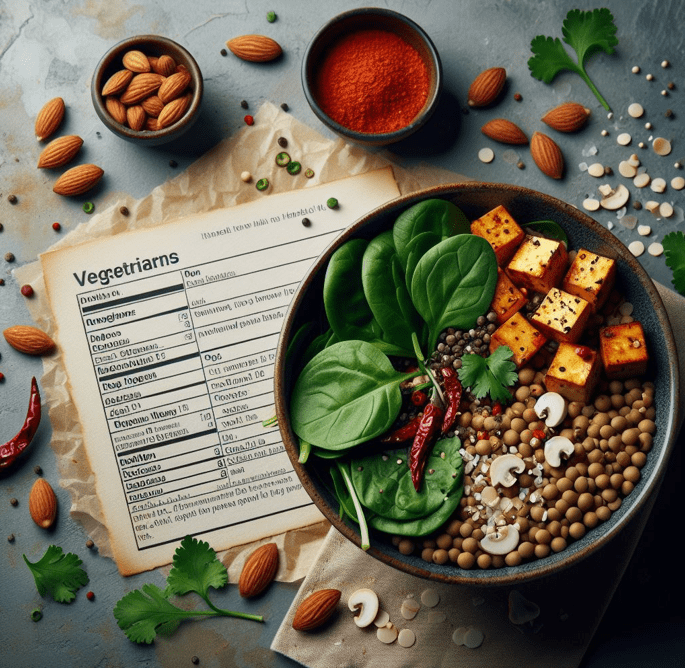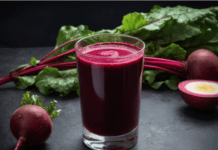Vitamin B12 is an essential nutrient for all people, and vegetarians and vegans need to get enough of it. Vitamin B12 is found naturally in animal products but not in plant-based foods. So, if you’re a vegetarian or vegan, you’ll need to get vitamin B12 from other sources, such as fortified foods or supplements.
Here are some of the best vegetarian sources of vitamin B12:
-
Fortified soy milk: Soy milk is an excellent source of protein and calcium for vegetarians, and many brands are also fortified with vitamin B12.
-
Fortified cereals: Cereals are a convenient and easy way to get your daily dose of vitamin B12. Look for cereals that are fortified explicitly with vitamin B12.
-
Nutritional yeast: Nutritional yeast is a vegan product made from inactive yeast. It has a cheesy flavor and is a good source of vitamin B12.
-
Tempeh: Tempeh is a fermented soybean product high in protein and vitamin B12.
- Nori: Nori is a type of seaweed commonly used in sushi. It is a good source of vitamin B12 and other nutrients.
- Eggs: Eggs are a good source of protein and vitamin B12, and they are also relatively affordable.
- Tofu: Tofu is a versatile soybean product that can be used in a variety of dishes. It is a good source of protein and vitamin B12.
- Miso: Miso is a fermented soybean paste that is a staple in Japanese cuisine. It is a good source of vitamin B12 and other nutrients.
- Plant-based yogurt: Some brands of plant-based yogurt are fortified with vitamin B12.
- Mushrooms: Certain types of mushrooms, such as shiitake and portobello mushrooms, are a good source of vitamin B12.
- Almonds: Eating almond nuts daily can help increase the Vitamin B12 content inside the body.
It is important to note that the absorption of vitamin B12 from fortified foods is not as efficient as the absorption of vitamin B12 from animal products. Therefore, vegetarians and vegans may need to take vitamin B12 supplements to ensure that they are getting enough of this essential nutrient.
What Vitamin B12 Does for Your Body
Vitamin B12 plays a vital role in many aspects of your health, including:
-
Red Blood Cell Formation: Vitamin B12 is essential for the production of healthy red blood cells, which carry oxygen throughout your body. Without enough vitamin B12, red blood cells become abnormally large and misshapen, leading to a condition called macrocytic anemia.
-
DNA Synthesis: Vitamin B12 is involved in the synthesis of DNA, the genetic material that carries the blueprint for your body’s cells. It helps to ensure that your DNA is properly replicated during cell division, preventing errors that can lead to genetic disorders.
-
Nerve Function: Vitamin B12 is also essential for maintaining the health of your nerves. It helps to protect nerve cells from damage and supports the transmission of nerve signals, which are crucial for normal movement, sensation, and cognitive function.
Food Sources of Vitamin B12
Vitamin B12 is naturally found in animal products, including:
-
Meat: Beef, pork, lamb, and poultry are excellent sources of vitamin B12.
-
Fish: Salmon, tuna, mackerel, sardines, and other fatty fish are also rich in vitamin B12.
-
Eggs: Eggs contain a moderate amount of vitamin B12.
-
Dairy Products: Milk, yogurt, and cheese are good sources of vitamin B12.
Recognition and Prevention of Vitamin B12 Deficiency
Vitamin B12 deficiency is a common condition, especially among older adults, vegetarians, and vegans. It can cause a variety of symptoms, including:
-
Anemia: Symptoms of anemia include fatigue, weakness, pale skin, shortness of breath, and difficulty concentrating.
-
Neurological Problems: Vitamin B12 deficiency can also cause neurological problems, such as numbness, tingling, burning, or pain in the hands and feet, difficulty walking, balance problems, memory loss, confusion, and depression.
-
Glossitis: Inflammation of the tongue, which can cause redness, swelling, pain, and loss of taste.
-
Digestive Issues: Vitamin B12 deficiency can also lead to digestive issues, such as nausea, vomiting, diarrhea, constipation, loss of appetite, and weight loss.
If you are experiencing any of these symptoms, it is important to see your doctor to get tested for vitamin B12 deficiency. Early diagnosis and treatment can help prevent serious complications.
How to Increase Vitamin B12 Intake
There are several ways to increase your vitamin B12 intake:
-
Eat a balanced diet: Include plenty of animal-based foods in your diet, such as meat, fish, eggs, and dairy products.
-
Choose fortified foods: Some plant-based foods, such as cereals, soy milk, and nutritional yeast, are fortified with vitamin B12.
-
Take supplements: If you are at risk of vitamin B12 deficiency, talk to your doctor about taking a vitamin B12 supplement.
When to Take Vitamin B12 Supplements
Vitamin B12 supplements are available in various forms, including tablets, capsules, lozenges, sprays, drops, and injections. The type and dose of supplement you need will depend on your needs and circumstances.
-
Adults: Adult men and women require 2.4 micrograms (mcg) of vitamin B12 per day.
-
Pregnant and Breastfeeding Women: Pregnant women need 2.6 mcg of vitamin B12 per day, and breastfeeding women need 2.8 mcg per day.
-
Vegetarians and Vegans: Vegetarians and vegans may need to take vitamin B12 supplements, as plant-based foods do not naturally contain vitamin B12.
-
People with Certain Health Conditions: Certain health conditions, such as pernicious anemia, celiac disease, or Crohn’s disease, may also need to take vitamin B12 supplements.
Conclusion
Vitamin B12 is an essential nutrient that is crucial to your overall health. By following a balanced diet, including fortified foods or supplements, you can ensure that you








